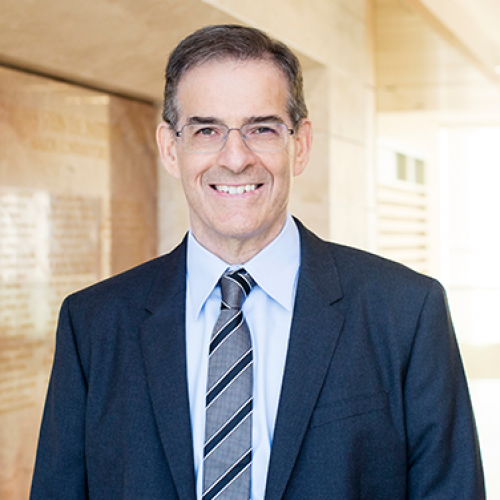Dean's Message

THE LANDMARK REPORT BY THE U.N. INTERGOVERNMENTAL PANEL ON CLIMATE CHANGE released last October was unequivocal: We are already feeling the effects of a warming planet, and without rapid and far-reaching actions to reduce the carbon emissions that are altering our climate, the Earth’s future is fraught with peril.
Much of the early discussion on climate change centered on impacts such as melting glaciers that, while critically important, often felt disconnected from human health. We now have a much greater understanding that the threat we face to our natural environment directly affects our health and wellness. The U.S. Centers for Disease Control and Prevention has spelled out some of the likely consequences of climate change — increased respiratory and cardiovascular disease, more injuries and premature deaths related to extreme weather events, changes in the prevalence and geographic distribution of food- and water-borne illnesses and other infectious diseases, and threats to mental health. Some populations will see these effects more than others, but no country or community is immune.
It’s easy to feel powerless against planetary changes, but the reality is that public health can do a great deal to confront this crisis, both by contributing to the effort to slow global warming — commonly referred to as mitigation — and through strategies to limit the negative health effects of climate change (adaptation).
As this issue of our magazine illustrates, the Fielding School is home to some of the world’s most renowned researchers when it comes to addressing environmental concerns. Our faculty and alumni were instrumental in contributing to the knowledge and policies that dramatically improved air quality in the Los Angeles basin over the last several decades, and I am confident that our school will again play a key role as we address the public health challenges posed by climate change.
The challenges we face today as a local and global community can seem daunting, but we continue to confront them head on. In addition to climate change, the pages that follow feature our faculty’s ongoing work in addressing the health of immigrants (page 24) and the opioid crisis (page 26). At the Fielding School we remain deeply committed to finding and implementing solutions that will allow our present and future generations every opportunity to lead healthy lives.
![]()
Ron Brookmeyer, PhD
Interim Dean
